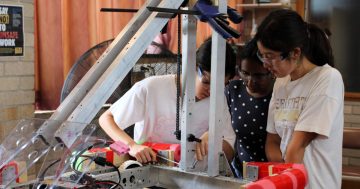Dan Schawbel* suggests five ways virtual assistants can improve the experience of employees in the progressive organisations of the future.
 While virtual assistants like Amazon’s Alexa have been widely adopted by consumers, the use of AI-enabled tools in the workplace hasn’t quite caught up yet.
While virtual assistants like Amazon’s Alexa have been widely adopted by consumers, the use of AI-enabled tools in the workplace hasn’t quite caught up yet.
Various sources indicate that this is set to change over the next few years.
Technology consultant Gartner predicts that by 2025, 50 per cent of knowledge workers will use a virtual assistant on a daily basis, up from two per cent in 2019.
Several events and trends have accelerated the demand for conversational technologies that support people at work.
First, there was the widespread shift to remote working at the beginning of the pandemic.
Employees working virtually have sometimes struggled to adapt to the lack of in-person support, but offering an AI assistant has proven to be a way for people to quickly get the help they need.
Then came the Great Resignation, which shows no signs of abating and continues to affect nearly all aspects of the workplace.
One major impact is that with so many people exiting the workforce, employees who haven’t jumped ship often find themselves burdened with extra work.
That includes mundane or administrative tasks — exactly the type of work that AI is designed to help with.
One final trend driving the adoption of AI-powered virtual assistants is the growing recognition of how work impacts our mental and physical health.
Offering AI tools, while certainly not a panacea for all wellbeing issues, can help workers focus more on what really matters.
Whether your organisation is already using AI or you’re still in the preliminary stages of adoption, it’s a good idea to examine the many benefits of these technologies.
AI assistants can make HR tasks easier
According to a study by G&A Partners, HR spends 73 per cent of its time on administrative activities.
However, many of these issues can be addressed more effectively by conversational AI technologies, which would reduce some of the busy work.
In addition to freeing up time by automating responses to frequently asked questions, employees can use AI assistants to get access to crucial information when and where they need it.
In a recent survey, 71 per cent of full-time employees said they were willing to use a conversational virtual assistant to accomplish HR tasks.
AI assistants can simplify the on-boarding process
According to Glassdoor, employees who rate their on-boarding experience as highly effective are 18 times more likely to feel highly committed to their organisation.
However, just 12 per cent of workers feel that their organisation does a great job of on-boarding new employees.
Offering an AI assistant is one way that employers can better welcome their new team members.
An interactive chat experience can help kick-start the first days of work and make it easier for new hires to find what they need, feel connected, and get productive.
AI assistants can support employee learning and development
Bolstering employee skill-building efforts is critical right now.
Some 87 per cent of organisations worldwide report they already have a skills gap or will have one within a few years.
Yet while executives say that reskilling is the best way to close the capability gap, only one third of companies report their skill-building programs are successful.
AI-powered assistants can provide support in this area, long after an employee’s initial on-boarding.
These tools can actually learn an employee’s strengths and weaknesses over time and suggest specific training to help them address areas where they’re struggling.
They can also suggest learning opportunities aligned with an individual’s unique interests and responsibilities.
AI assistants can help workers offload administrative tasks
AI assistants can help with a wide variety of administrative tasks, from scheduling meetings to room booking, travel booking, IT support and more.
A recent Forbes article highlighted some specific (and more unique) use cases across different industries.
For example, intelligent chatbots are being used in sales organisations to prioritise sales calls.
In education, virtual agents can offload administrative tasks from teachers, giving them more time for teaching.
Similarly, health care providers can benefit from AI that supports patients and enables self-care.
AI assistants can streamline the employee feedback loop
Forward-thinking organisations know that it’s critical to gather employee feedback on a regular basis.
However, too often this process is done in an ad hoc fashion, and workers may perceive that their input isn’t resulting in any real change.
An AI assistant can get anonymous (and therefore more honest) feedback from employees and ensure that it reaches the right people.
This helps create a culture of transparency and continuous improvement.
The process behind this doesn’t have to be complex.
For example, isolved’s conversational virtual assistant will include functionality that allows employers to gather employee feedback via regular ‘pulse’ surveys.
The tool will also help HR and business leaders to schedule polls, quizzes and broadcasts, while empowering them with analytics to drive better engagement and improve processes.
AI-enabled assistants are set to become a key part of every organisation’s digital transformation in the years to come.
Not only are more employees expecting this type of support, but the future success of organisations could depend on it.
With benefits like a stronger on-boarding process, better skill-building programs, and more productive, healthier workers, there’s really no reason why conversational technologies shouldn’t be on every leader’s agenda right now.
*Dan Schawbel is a bestselling author and Managing Partner of Workplace Intelligence, a research and advisory firm helping HR adapt to trends, drive performance and prepare for the future.
This article is part of his Workplace Intelligence Weekly series.











